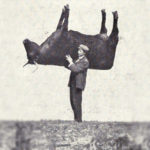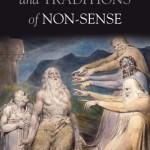We run our website the way we wished the whole internet worked: we provide high quality original content with no ads. We are funded solely by your direct support. Please consider supporting this project.
Open Theism and the Nature of the Future
In this philosophical essay Alan Rhoda, Tom Belt and I argue that the future cannot be exhaustively described in terms of what will and will not happen, but must also be described in terms of what may and may not happen. The future, in other words, is partly open. The thesis is defended against a number of possible philosophical objections.
Click here to download this essay: Open Theism, Omniscience, and the Nature of the Future
Category: Essays
Tags: Essay, Open Theism
Topics: Defending the Open View, Free Will and the Future
Related Reading

The Religionless Church of the Future
“The time when men could be told everything by means of words, whether theological or simply pious, is over, and so is the time of…religion as such.… [W]hat is religionless Christianity?… What is the significance of a Church… in a religionless world?” Deitrich Bonhoeffer, Letter From Prison, April 30th, 1944. The Crisis of a…

God of Sense and Traditions of Non-Sense
As the title suggests, in his book, God’s Problem: How The Bible Fails to Answer Our Most Important Question – Why We Suffer, Bart Ehrman argues that the Bible has nothing compelling to say about the problem of evil. Well, I just put down a beautifully written four-hundred and fifty page book that compellingly argues…

Is Jesus Unique?
The Search for a Non-Unique Jesus Built into the naturalistic assumption that drives the liberal New Testament search for the “man behind the myth” is the notion that, whoever Jesus was, he cannot have been utterly unique. The laws that operate in the world today, including the laws of human behavior, have always operated. And…

What is the significance of 1 Samuel 15:10?
In light of Saul’s sin the Lord says, “I regret that I made Saul king, for he has turned back from following me.” Common sense would suggest that one can only regret a decision one makes if the decision results in an outcome other than what was expected or hoped for. If God foreknows all…

What is the significance of Exodus 33:1–3, 14?
“The Lord said to Moses, ‘Go, leave this place, you and the people whom you have brought up out of the land of Egypt, and go to the land of which I swore to Abraham, Isaac, and Jacob…I will send an angel before you, and I will drive out the Canaanites…Go up to the land…

God’s Love and Your Freedom
The most distinctive aspect of the revelation of God in Christ is Jesus’ demonstration that God relies on love to defeat his enemies and to accomplish his purposes. More than anything else, it was the perfect love of God revealed in the incarnation, ministry, and self-sacrificial death of Jesus that in principle defeated evil and…
